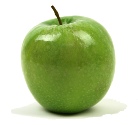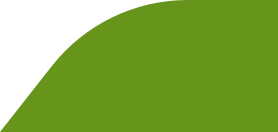



Helping you make healthy choices for you and your family

Complementary Therapies
Disclaimer: The information in this article should not be regarded as medical advice. If you are receiving medical treatment or taking prescribed medication, you are advised to consult your GP or health practitioner before making any changes to your diet or lifestyle.
Emotional Freedom Technique - EFT is a form of psychological acupressure, based on the same energy meridians as acupuncture. It is used to treat physical and emotional ailments by simply tapping on specific meridian points with the fingertips, while thinking about your particular problem. The client is encouraged to make positive affirmations whilst going through the tapping process. This is believed to restore balance between mind and body and works well for those with addictions, pain or who have experienced a traumatic event. It can also be used to steady the nerves before giving a speech, taking an exam or a driving test. The therapist teaches the client how to perform EFT so they can practice it on themselves at any time.

Over the last decade, complementary therapies have become very popular, especially in helping to alleviate symptoms of some of the chronic conditions such as Arthritis and Irritable Bowel Syndrome. Many of these therapies are available on the NHS and some practitioners run clinics within GP surgeries and health centres. There are literally dozens of complementary therapies available and here you will find just seven which should be available in your community.
Please Note: These therapies are not intended to replace traditional medicine or healthcare.
Please Note: These therapies are not intended to replace traditional medicine or healthcare.
Acupuncture - is a safe and effective treatment for many common conditions and it is often used to relieve pain or help overcome addictions, such as smoking.
It is believed to work by encouraging the body to promote natural healing through the insertion of very fine needles and applying heat or electrical stimulation at precise points on the body.
Acupuncture has been used for thousands of years in the Far East. The Chinese believe that channels of energy flow through the body, called meridians, and occasionally these get disrupted. By inserting the needles at precise points, imbalances can be corrected, therefore stimulating the body to start a healing process.
Aromatherapy - is based on using essential oils from plants, trees and flowers to stimulate a healing energy and help to regain a sense of well-being. It is important to consult a qualified aromatherapist as some essential oils should be avoided during pregnancy, epilepsy or other health conditions. Aromatherapy can help emotionally based conditions such as depression, anxiety, insomnia and mood swings. The oils can also be used to treat colds, asthma, aches and pains as well as treat skin conditions such as bruises, burns, acne and eczema.
It is believed to work by encouraging the body to promote natural healing through the insertion of very fine needles and applying heat or electrical stimulation at precise points on the body.
Acupuncture has been used for thousands of years in the Far East. The Chinese believe that channels of energy flow through the body, called meridians, and occasionally these get disrupted. By inserting the needles at precise points, imbalances can be corrected, therefore stimulating the body to start a healing process.
Aromatherapy -


Homeopathy - is a therapy that receives mixed reactions from the medical profession, yet there is a growing number of GPs who practice it or refer their patients to a homeopath. Some vets also use it successfully on animals.
Homeopathy is based on the principle of treating ‘like’ with ‘like’. Therefore a substance that can cause a disease symptom can also cure it. The homeopathic remedy is produced through a series of dilutions and “succussion” (agitation) of a substance (plant, mineral, metal etc) to the point that no clinical trace can be found. It is believed the remedy works on an “energetic level” which stimulates a reaction to start the healing process.
Massage - aims to improve and maintain body systems to relieve stress. Stress causes muscle tension and chemical reactions. The therapeutic touch of the masseur’s hands can release the tension, improve circulation and help to remove toxins which leaves the client feeling very relaxed.
Nutritional Therapy - uses the nutrients in food to help the body get back into balance. Every cell of the body requires nutrition to function normally and as each person is unique, we all have different needs. To establish these, a nutritionist may use a questionnaire, a food diary and a variety of blood or tissue tests. Once imbalances have been detected, the nutritionist provides dietary advice and may recommend supplementation to assist the body to heal itself.
Homeopathy is based on the principle of treating ‘like’ with ‘like’. Therefore a substance that can cause a disease symptom can also cure it. The homeopathic remedy is produced through a series of dilutions and “succussion” (agitation) of a substance (plant, mineral, metal etc) to the point that no clinical trace can be found. It is believed the remedy works on an “energetic level” which stimulates a reaction to start the healing process.
Massage -
Nutritional Therapy -
Reflexology - is based on the belief that the internal organs and structures are mirrored in the feet or hands. Applying pressure on specific points in the feet should therefore have an effect on the corresponding organs in the body. As with acupuncture, reflexologists work on the principle of unblocking energy channels at reflex points. The gentle pressure that they use on the reflex points can help to break down tiny waste deposits (known as crystals) and encourage their removal. Reflexology can also improve circulation, reduce tension and stress symptoms and revitalise energy.
| Your Health Your Future |
| Controversial Ingredients |
| Nutritional State |
| Parent and Child |
| Microwave Ovens |
| Recommended Books |
| Skin Absorption |
| Sodium Lauryl Sulphate |
| Propylene Glycol |
| DEA, MEA, TEA |
| Chemical Calculator |
| Fluoride |
| Aspartame |
| Fluoridation |
| Water Filtration |
| Planning a Pregnancy |
| Pregnancy Care |
| Post Pregnancy Care |
| Amazon Books |
| EBooks |
| About Us |
| Health Services |
